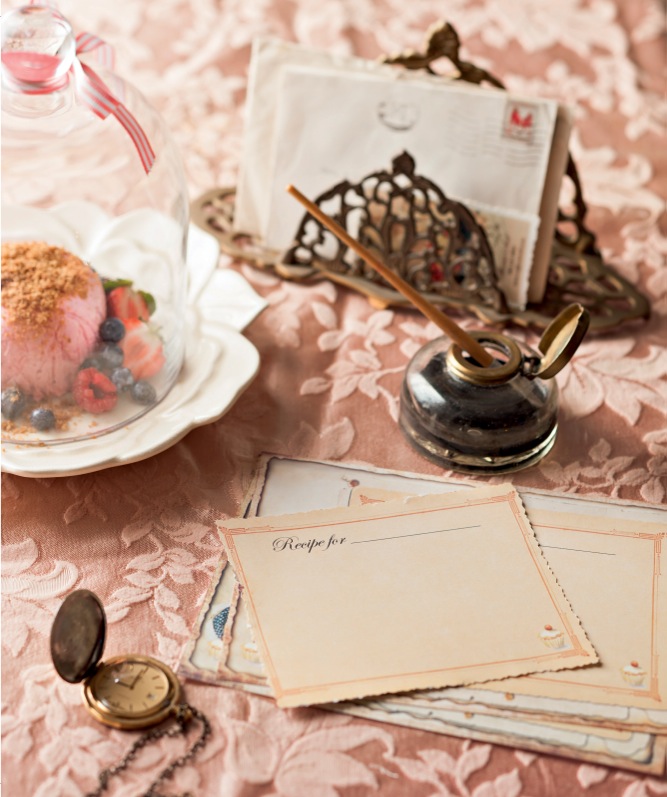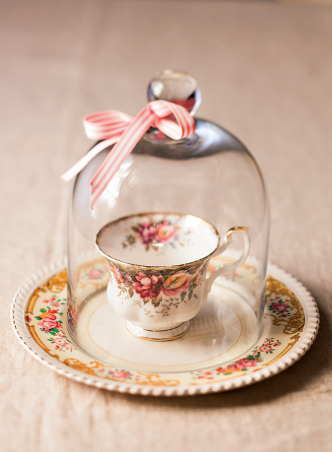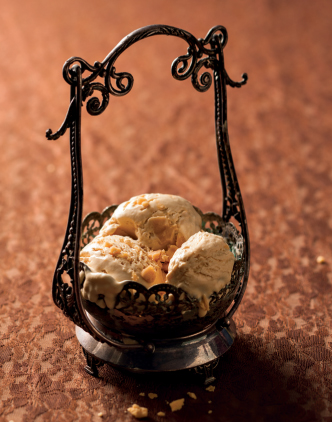Sweets for my sweet! Sugar for my honey!
A sweet snack, something sweet, pudding, dessert – call it what you will, no meal would be complete without it. I can hardly imagine concluding a family meal without a proper pudding … buttermilk pudding, malva pudding, Jan Ellis pudding (malva pudding’s little brother) or a lovely tart lemon pudding.
During the hot summer months we can delight in home-made ice cream and sorbet, and nowadays there are no rules. Gorgonzola is no longer shackled to the cheese board, but can play cat and mouse with your taste buds in a delicious, rich ice cream! Basil is the perfect dance partner for strawberries in a bright red sorbet.
Sometimes the sweetness at the end of the meal can be as simple as breaking open a ripe fig and enjoying it with a bit of goat’s-milk cheese – entirely unpretentious yet so delicious!
Meringues with guava custard
Custard, no matter how it is served, remains a stalwart of the dessert table. Whether you like thick custard with canned peaches or thin custard over a Jan Ellis pudding, it remains an indispensable part of a pudding … in my house, anyway. This posh dessert is very French, but I give it a different flavour with guavas, a fruit sometimes overlooked in food circles. In summer my Mom makes the most marvellous guava pudding, which we call ‘gallon pudding’, because the recipe makes such a lot. This dessert is my up-market version of ‘gallon pudding’.
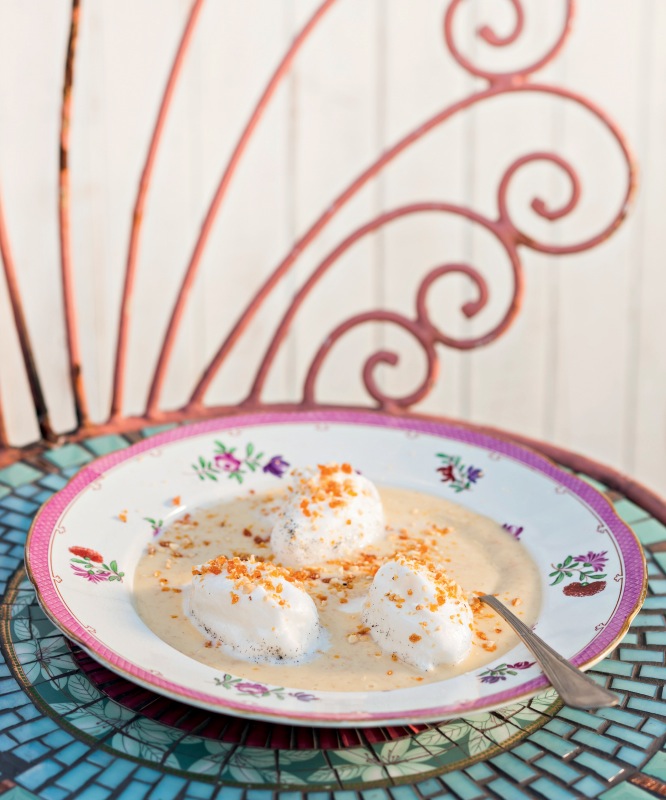
For the praline
- 125 ml castor sugar
- 100 ml hazelnuts, roasted and skins removed (rub the nuts between your hands – the skin will come off quite easily)
For the custard
- 500 ml milk
- 1 vanilla pod, sliced open
- 1 × 410 g can guavas, pitted and drained
- 5 egg yolks
- 125 ml castor sugar
For the meringues
- 3 egg whites
- 125 ml castor sugar
- 700 ml milk
For the praline
- Melt the sugar in a heavy-based pot over low heat until completely melted. Chop the nuts and sprinkle them onto a greased baking tray. Pour the caramelised sugar over the nuts and allow to cool and harden. When you’re ready to use the praline, chop it in a food processor or place it in a plastic bag and break it using a rolling pin.
For the custard
- Heat the milk, the vanilla pod and the guavas in a pot until it almost starts to boil. Pour the milk through a sieve into a bowl, discard the vanilla pod, place the guavas in a blender and pulse until smooth. Add the guava purée to the flavoured milk and stir through. Meanwhile, beat the egg yolks and castor sugar until pale yellow. Pour the flavoured milk into the egg mixture and mix well. Pour this mixture back into the pot and cook over very low heat until the custard thickens. Allow the custard to cool.
For the meringues
- Beat the egg whites in a clean mixing bowl until they form soft, white peaks. Continue beating and add the sugar a tablespoonful at a time. Beat until the meringue is thick and glossy. Heat the milk to boiling point in a pot, then reduce the heat and allow the milk to simmer. Using two spoons, shape the meringue into 4 large portions or 8 smaller ones. Slide the meringue portions from the spoon into the hot milk and poach for 2–3 minutes in total, turning once during this time. Spoon the custard into 4 pretty bowls, carefully remove the meringues from the milk and place on top of the custard. Sprinkle over the praline just before serving.
Enough for 4 people
Pan bread pudding
Bread pudding has always fascinated me. The fact that you can cobble together a feather-light pudding from stale bread, milk, eggs and sugar is nothing short of a miracle to me. Of course, the pudding can become very fancy if you replace the milk with cream, and the sugar with vanilla-castor sugar, but the basic principles remain the same. The French put the proverbial cherry on top with their ‘pain perdu’, which is just a different incarnation of bread pudding. I like individual portions, so I prefer to make my bread pudding in a pan. I give this recipe a true South African flavour by using ‘mosbolletjie’ (must-bun) bread.
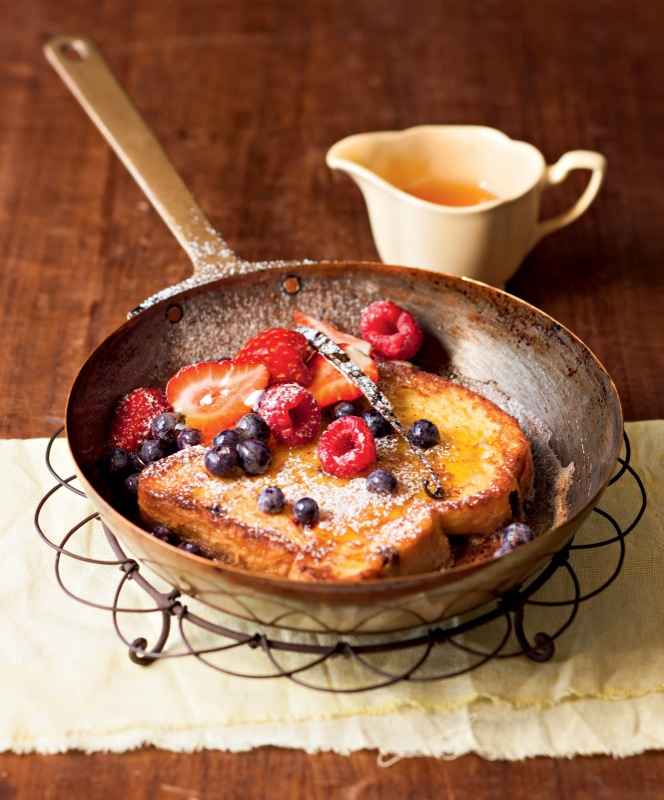
- 4 eggs
- 500 ml cream
- 5 ml ground cinnamon
- 2.5 ml freshly grated nutmeg
- 125 ml castor sugar
- 1 vanilla pod, sliced open and seeds scraped out
- 8 slices day-old ‘mosbolletjie’ bread
- 125 g butter
- cinnamon sugar or syrup for serving
- fresh berries for serving
- Beat the eggs, cream, cinnamon, nutmeg, sugar and vanilla seeds together in a bowl. Arrange the slices of bread in a flat, rectangular, ovenproof dish and pour the egg mixture over the bread. Set aside for at least 30 minutes until the bread has absorbed all the liquid. Preheat the oven to 180 °C. Melt the butter in a pan over medium heat. Remove the slices of bread from the egg mixture and shake off the excess. Fry each slice of bread until golden-brown on both sides. Keep the fried bread hot in the oven while you fry the remaining slices. Serve on plates or in individual pans (if you have a few) with a sprinkling of cinnamon sugar or syrup and garnished with fresh berries.
Enough for 8 people
- If you have trouble finding ‘mosbolletjie’ bread, you can use day-old raisin bread.
- Instead of fresh berries, preserved figs or ginger can be served with the bread pudding.
Emergency chocolate and pear dessert
We all have those days in our kitchens and in our lives when we need to take a short cut to get through to the other side. The ideal is to prepare your meals with care, taking your time, but sometimes there’s no other way than just to look in the food cupboard for inspiration. This dessert is as old as the hills, and was originally made with peaches. I prefer pears, because they are softer and there’s no need to struggle with peaches that try to escape from the dish when you cut them.
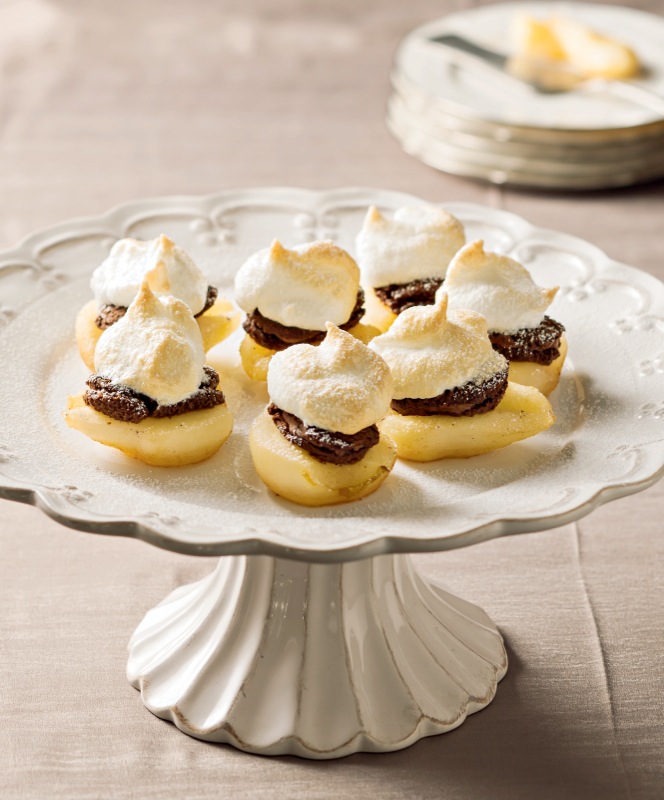
- 1 × 410 g can pears, drained
- 6 Romany Cream Original Chocolate biscuits
- 60 ml port or sherry
- 2 egg whites
- 100 ml castor sugar
- Preheat the oven to 180 °C. Place the pears in an ovenproof dish with the hollows facing up. I always cut a very thin slice off the bottom of the pears to create a level base so that they don’t slide around in the dish. Place a Romany Cream into each hollow and pour a little port or sherry over each biscuit. Bake in the oven for about 10 minutes or until the biscuits are soft. Meanwhile, beat the egg whites until soft peaks form, then beat in the castor sugar a tablespoonful at a time. Remove the pears from the oven and drop a dollop of meringue on top of each biscuit. Return to the oven and bake for 5 minutes or until the meringue is golden. Serve with a scoop of vanilla ice cream.
Enough for 6 people
- The pears can be replaced with canned peaches.
- You can fold 125 ml desiccated coconut into the meringue after it has been beaten.
- The dessert can be made ahead of time up to the meringue stage. Make the meringue as soon as your guests are ready for dessert and bake until the meringue is golden – baking time is literally just 5 minutes.
Old faithful brown pudding
A friend of ours is always teasing me and saying that pots and bowls come in four sizes … small, medium, large and Timm-sized! Yes, I do have very big bowls in my house, but that’s only because I grew up in an environment of ‘always make room for one more at the table’. I suspect this recipe is as old as the hills, but I only got to know about it last year when a friend at church gave it to me. This certainly is an obliging recipe: you can double it, reduce it, colour it and flavour it to your heart’s content and it will always come out tops!
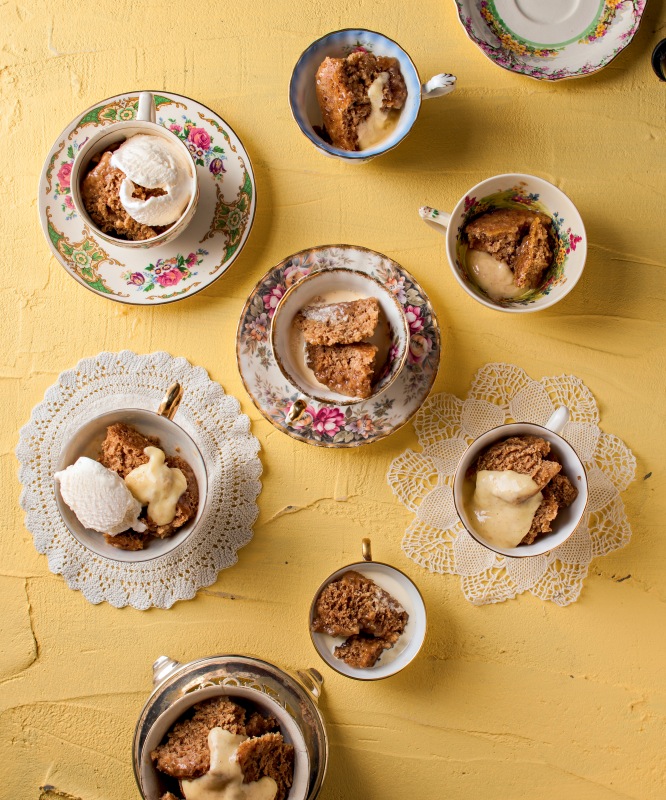
Here are the quantities of the ingredients for medium-sized, large and Timm-sized puddings:
|
MEDIUM-SIZED (6 portions)
|
LARGE (8–10 portions)
|
TIMM-SIZED (30 portions)
|
|
125 ml butter
|
375 ml butter
|
625 ml butter
|
|
175 ml sugar
|
550 ml sugar
|
925 ml sugar
|
|
1 egg
|
3 eggs
|
5 eggs
|
|
15 ml apricot jam
|
45 ml apricot jam
|
90 ml apricot jam
|
|
250 ml cake flour
|
750 ml cake flour
|
1.25 kg cake flour
|
|
5 ml salt
|
7.5 ml salt
|
10 ml salt
|
|
5 ml ground ginger
|
10 ml ground ginger
|
15 ml ground ginger
|
|
5 ml ground cinnamon
|
10 ml ground cinnamon
|
15 ml ground cinnamon
|
|
5 ml bicarbonate of soda
|
15 ml bicarbonate of soda
|
25 ml bicarbonate of soda
|
|
250 ml boiling water
|
750 ml boiling water
|
1 litre boiling water
|
|
For the sauce
|
|
|
|
250 ml boiling water
|
750 ml boiling water
|
1.25 litres boiling water
|
|
125 ml sugar
|
375 ml sugar
|
625 ml sugar
|
- Preheat the oven to 180 °C. Cream the butter and sugar until light, then add the eggs and apricot jam. Mix in all the dry ingredients, except the bicarbonate of soda. Lastly, mix the bicarbonate of soda with the boiling water and add it to the rest of the ingredients.
- Spray an oven dish with non-stick cooking spray. Combine the boiling water and sugar for the syrup and pour into the dish. Spoon the pudding batter over the syrup, cover the dish with foil and bake for 1–11⁄2 hours or until a skewer inserted comes out clean. Serve with ice cream, cream or custard.
- Replace half the water with orange juice.
- Add the grated rind of 1 lemon to the batter.
- Add 250 ml desiccated coconut to the batter.
- Add 125 ml each of chopped nuts and dates to the batter.
Easy berry cheesecake
This cheesecake is also one of those recipes that every woman should have. I think most of us already have a version of the recipe on a piece of paper or serviette, but you might recognise it as a fridge tart with a biscuit base. Today I will turn the fridge tart on its head! This is another case of knowing the basic recipe and being able to put your own stamp on it just by being a little innovative!
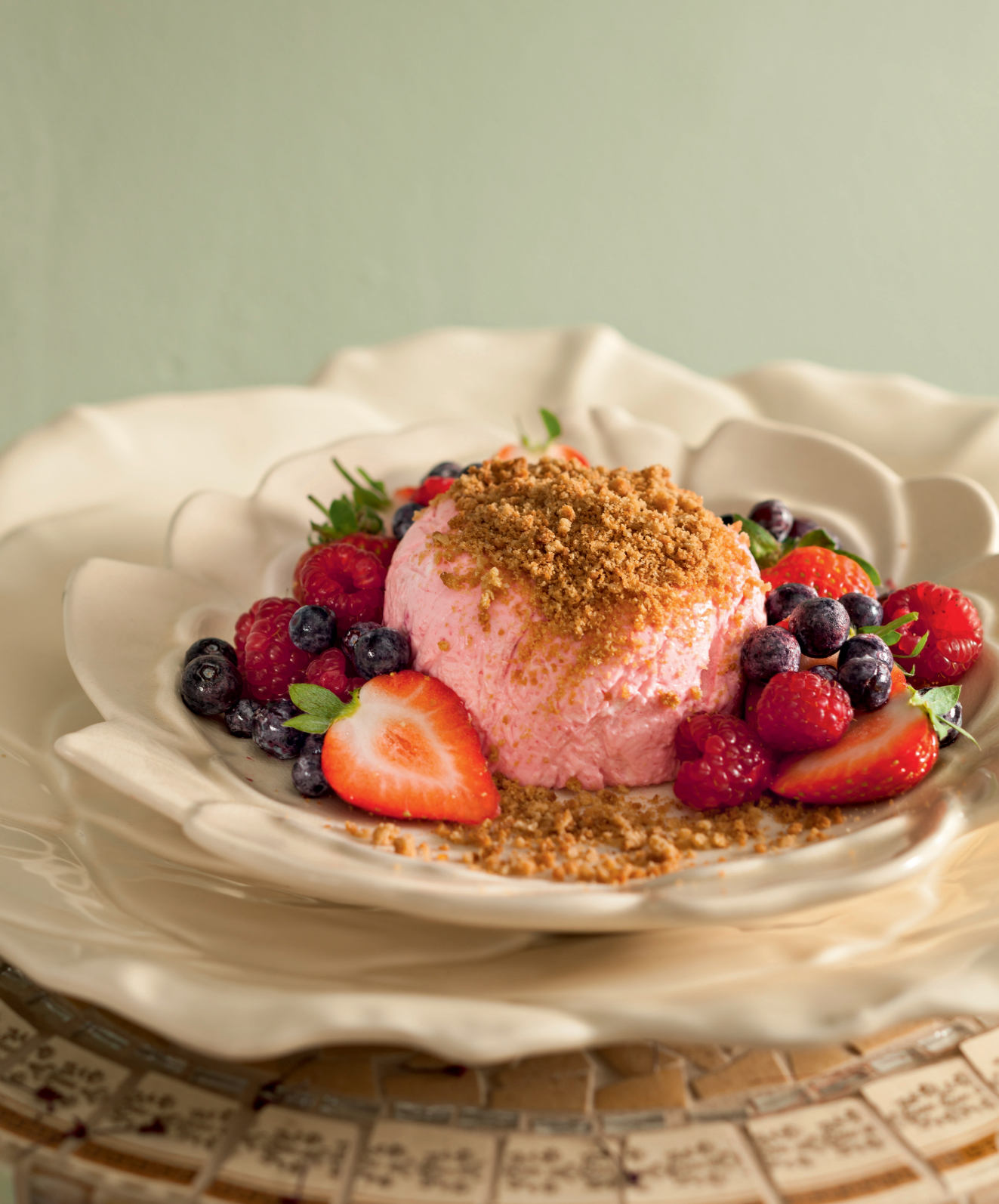
- 125 ml boiling water
- 1 × 80 g packet jelly powder – choose the flavour to suit your fruit
- 3 × 250 g tubs plain cream cheese
- 250 ml fresh cream
- fresh berries of your choice
- 8 ginger biscuits
- Spray 8 cups or ramekins with non-stick cooking spray. Mix the boiling water with the jelly powder until the jelly has dissolved. Allow to cool but not to set. Beat the cream cheese in a mixing bowl until creamy and soft. Add the cooled jelly and mix well. Beat the cream until stiff and fold into the cream cheese and jelly mixture. Fill the cups or ramekins with the mixture and leave in the fridge for at least 2 hours to set. When you are ready to serve the cheesecake, quickly dip the cup or ramekin into boiling water and place a plate upside-down on top of the ramekin. Invert the plate so that the cheesecake falls out of the ramekin and onto the plate. Crumble a ginger biscuit over each cheesecake and serve with fresh berries.
Enough for 8 people
- When you want to make a large cheesecake, make a biscuit base with a whole packet of crumbled ginger biscuits and 80 g melted butter. Press the biscuit mixture over the base of a 23-cm springform cake pan and pour the cheesecake mixture into it. Place in the fridge for at least 2 hours to set.
- Remember that fresh pineapple, kiwifruit and pawpaw prevent gelatine from setting; if you want to use these fruits you should use the canned variety.
- For a quick semifreddo you can place the ramekins in the freezer for 20–30 minutes. You will still have the creamy cheesecake texture, but at the same time it will have a similar texture to that of ice cream. It is wonderfully refreshing.
Making ice cream is child’s play
I dream of owning a large industrial ice-cream maker so that I can make ice cream in a jiffy when the craving overcomes, but yes, we all have our dreams and I’ll have to wait for my ship to arrive. Meanwhile, what do I do when the craving hits me? I think the first home-made ice cream I ever ate was made by our choir conductor’s wife. She used to entertain the whole choir once a year, and she would take these old-fashioned enamel buckets of home-made ice cream out of the freezer. Her recipe used evaporated milk – I have a weakness for evaporated milk served with canned peaches and I immediately succumbed to her recipe. Here are a few recipes for ice cream that you can make without having to use an ice-cream maker.
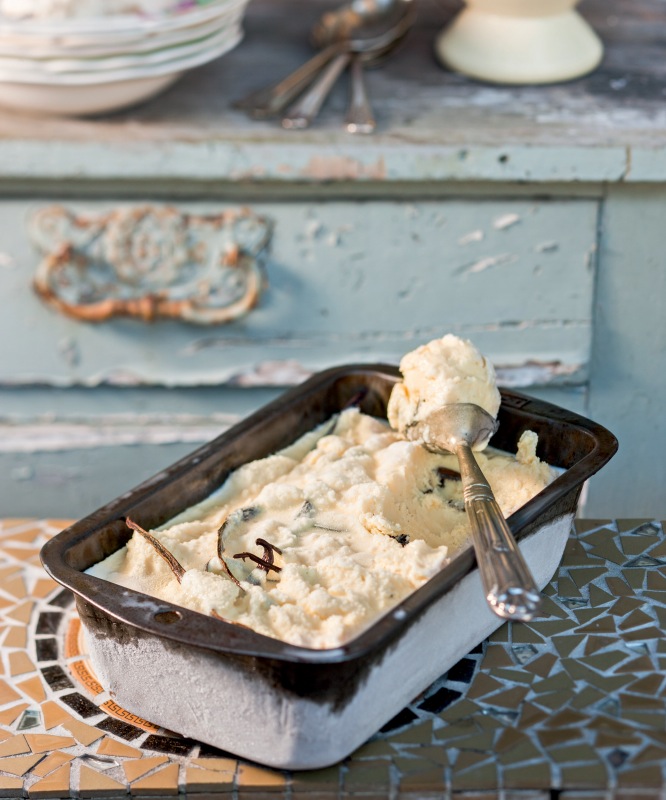
Aunty Rina’s old-fashioned vanilla ice cream
- 1 × 380 g can evaporated milk, chilled overnight in the fridge
- 1 vanilla pod, sliced open and seeds scraped out
- 1 × 385 g can condensed milk
- 250 ml milk
- a pinch of salt
- Pour the chilled evaporated milk into your mixer, add the vanilla pod and seeds and beat until thick and creamy. Add the remaining ingredients and mix well. Pour into a plastic container and freeze. After 30 minutes, use a fork to scrape through and loosen the ice crystals. Repeat the process twice more, at 30-minute intervals, then freeze until hard.
Makes 1 litre ice cream
Blueberry yoghurt ice cream
- 125 ml castor sugar
- 30 ml water
- 250 g fresh blueberries
- 500 ml Greek yoghurt
- Place the sugar, water and blueberries in a heavy-based pot and heat slowly to melt the sugar. When the sugar has melted, cook the blueberries for 2 minutes and remove from the stove. Allow to cool completely. Combine the cooled blueberries with the yoghurt, spoon into a plastic container and place in the freezer. After 30 minutes, use a fork to scrape through and loosen the ice crystals. Repeat the process twice more, at 30-minute intervals, then freeze until hard.
Makes 800 ml ice cream
Serve with more fresh berries and crumbled meringue.
Caramel ice cream for the grown-ups
- 600 ml fresh cream
- 1 × 380 g can Nestlé Caramel Treat
- 40 ml Amarula or Cape Velvet liqueur
- 125 ml crumbled caramel fudge
- Beat the cream until stiffish but still soft and flowing. Mix in the Caramel Treat a tablespoonful at a time. Add the Amarula or Cape Velvet liqueur and the crumbled fudge and mix well. Spoon the mixture into a plastic container and leave in the freezer overnight.
Makes 1 litre ice cream
The alcohol in the liqueur will prevent the ice cream from becoming rock hard.
Dark chocolate and coffee ice cream
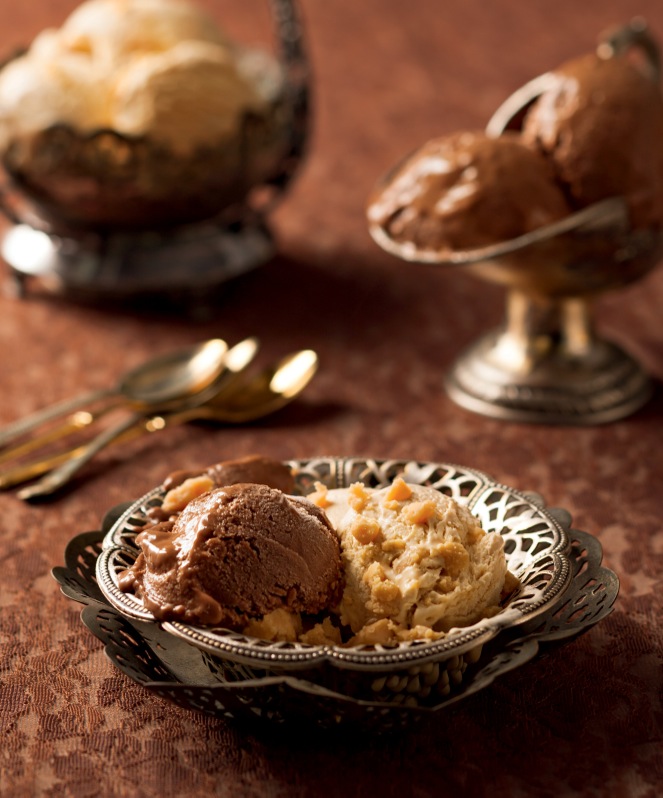
- 4 × 100 g slab 70 % dark chocolate, finely chopped
- 1 litre carton vanilla custard
- 15 ml good-quality instant coffee powder
- 15 ml boiling water
- Melt the chocolate in the custard in a heavy-based saucepan over very low heat until the mixture is dark and smooth. Mix the coffee powder with the boiling water and add to the custard mixture. Pour the custard into a plastic container and place in the freezer. After 30 minutes, beat it with a fork to break up the ice crystals. Repeat the process twice more, at 30-minute intervals, then freeze until hard.
Makes about 1. 2 litre ice cream
- 125 ml chocolate chips can be added for extra texture.
- 125 ml frozen berries can be added instead of the coffee.
- Serve the ice cream in tiny glasses after a very rich meal.
